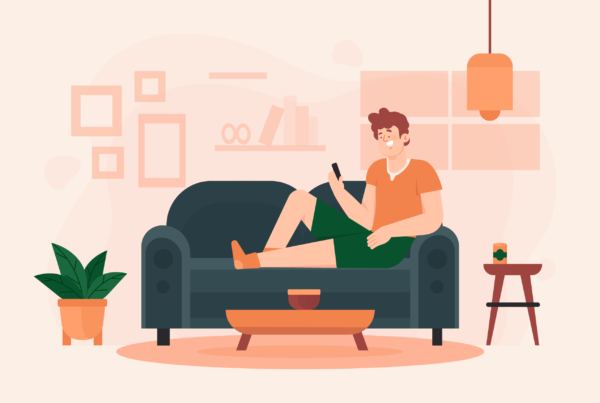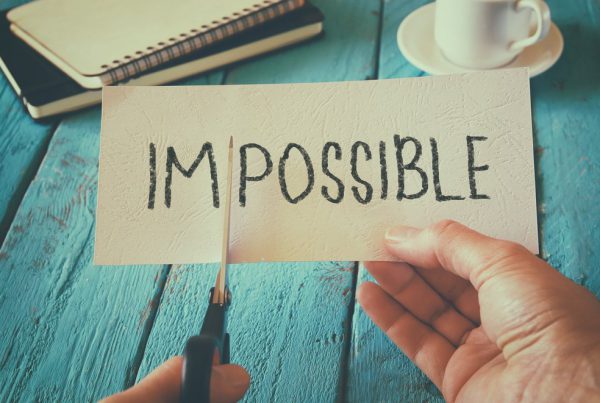We all want it but it appears that most of us don’t have nearly enough of it.
What am I talking about? Happiness!
Happiness research is now a big business. Where once the secret of happiness was left to the philosophers to ponder, the world of science has since joined the party.
Scientists want to know what makes us happy, psychologists want to know why, and marketers want to know how to make money out of our desperate desire to be happy.
Why has research is this area exploded? Despite rises in the standard of living and greater and fancier possessions, depression has risen to affect one in four people. While our external world is getting more luxurious, our internal world is struggling.
Why isn’t our happiness climbing in parallel with our quality of life? I’ve found everything we thought we knew about happiness is wrong. It’s time to debunk some common myths about happiness.
Don’t the big things make us happy?
Major positive events such as a promotion, a new relationship, buying a house or even winning the lottery may provide a boost of happiness but they do not always promote long-term happiness – we eventually return to our previous level of happiness. Research shows that few positive experiences affect our happiness for more than three months.
The frequency of our positive experiences rather than the intensity of our positive experiences is a better indicator of happiness. A person who experiences a number of good things in one day is likely to be happier than another who has one great thing happen. It really is the little things in life that matter.
Aren’t I happiest when things are easy and I am cruising along?
We mistakenly tend to think that relaxing and not working hard or cruising in life with no pressure will make us happy but the truth is boredom equals discontent. Communities with high youth crime rates often cite the root cause of crime as boredom in kids who then look for trouble to overcome their ennui.
Matthew Killingsworth from Harvard university has created an iPhone web app called Track Your Happiness, tracking more than 15,000 people in 83 countries. The app queries users at random intervals on their mood and what they are doing at the time, as well as their level of productivity and social interactions.
His findings show that for 50 percent of the day our mind wanders away from what we are doing during which time we are incredibly unproductive. When our mind wanders and we are no longer ‘present’ we experience our greatest level of unhappiness. Why? Because our thoughts tend to gravitate to and focus on unpleasant thoughts or personal worries.
Most importantly, he showed that when our attention is completely absorbed in a task we experience our greatest level of happiness.
Surely you can’t be happy at work?
In terms of overall wellbeing, career satisfaction has been shown to be more important than that in the physical, financial, social or community domains. Why? Because work makes up so much of our time and many of us tend to identify very strongly with what we do for a living.
Moreover, we are happiest when we feel challenged and engaged – working to achieve difficult goals albeit those within our reach. Most employees do not want to be bored at work. Bored employees are neither content or productive. Indeed, the research linking happy employees to greater productivity and performance is so strong it’s no longer up for debate.
Don’t I have to focus on myself to be happy?
A study was conducted where people were given a sum of money and asked to either go buy something for themselves or for someone else. Afterwards, the group that bought a gift for someone else reported much higher levels of happiness than the group that bought something for themselves.
When we do things for others we get a much bigger happiness bump than doing something for ourself. Same goes for the workplace. When you help others improve and develop their skills, your happiness is far greater than if you just focus on getting ahead yourself.
That’s just me; I am not a happy person
Researchers have since discovered that happiness is not solely linked to genetics. While genes and heritage determine about 50 per cent, the rest depends on lifestyle decisions and daily habits. Although there’s no magic pill for happiness and wellbeing, we can consciously change our daily habits to make a difference.
When I have nice things then I will be happy
While we certainly get a bump in pleasure after we buy something beautiful for ourselves, the effect is short lived. What gives a bigger and longer lasting boost to happiness is when we spend money on great experiences; a holiday, a concert, hot air ballooning. If you want to spend money to get happiness, spend it on experiences rather than possessions.
Don’t I have to be a tortured soul to be creative and successful?
Is happiness really so desirable if – as it is so often thought – to write a best selling book or song you need to experience pain or heartache? There is no solid evidence to support this. Anguished artists are the exception, not the rule. It’s like saying ‘my grandfather smoked every day until he died at 99 years of age, therefore cigarettes must make you live longer’. Happier people are more creative and successful than tortured souls.
لماذا كل ما نظن أننا نعرفه عن السعادة خاطئ؟
من جانبه قام ماثيو كيلنجزوورث من جامعة هارفارد بعمل تطبيق خاص يسمى “مسار سعادتك” يقوم بمتابعة أكثر من 15,000 شخص من 83 دولة مختلفة. يعمل التطبيق على استطلاع مزاج المستخدمين خلال فترات عشوائية، عما كانوا يفعلونه في ذلك الوقت، وكذلك عن تفاعلاتهم الاجتماعية ومستوى إنتاجيتهم. لقد توصل كيلنجزوورث من خلال هذا التطبيق إلى أنه خلال 50% من يومنا تكون أذهاننا شاردة بعيدا عما نفعله، وفي أثناء ذلك نصبح غير منتجين بدرجة لا تصدق؛ لأننا عندما لا نعيش “اللحظة الحالية” نعاني أقصى درجات التعاسة. لماذا؟ لأن أفكارنا تنجذب إلى التركيز على الأفكار غير السارة أو المخاوف الشخصية، والأهم من ذلك أننا إذا قمنا بتركيز اهتمامنا بالكامل على مهمة ما سوف نصل إلى أقصى درجات السعادة. بالطبع لا يمكننا أن نكون سعداء في العمل وفيما يتعلق بالرفاه بشكل عام. تبين أيضا أن للرضا الوظيفي أهمية أكثر من الصحة البدنية أو المستوى المادي أوالاجتماعي. لماذا؟ لأن العمل يشغل الكثير من وقتنا، فضلا عن أننا نكون أكثر سعادة عندما نشارك ونتحدى ونعمل من أجل تحقيق أهداف صعبة. لقد ربطت الأبحاث بالفعل بين سعادة الموظفين وزيادة الإنتاجية وقوة الأداء؛ لذلك لم يعد هناك مجال للنقاش.
ألسنا بحاجة للتركيز على أنفسنا حتى نصبح سعداء؟ أجريت دراسة تم من خلالها إعطاء مجموعة من الأشخاص مبلغا من المال وطلب منهم الذهاب لشراء شيء إما لأنفسهم أو لآخرين. بعد ذلك، تبين أن المجموعة التي قامت بشراء هدايا للآخرين بلغت مستوى أعلى من السعادة عن المجموعة التي قامت بشراء أشياء لنفسها. عندما نقوم بعمل أشياء للآخرين نكون سعداء أكثر من قيامنا بعمل أشياء لأنفسنا….. والأمر نفسه ينطبق على مكان العمل. فعندما تساعد الآخرين على تحسين مهاراتهم وتطويرها تصبح سعادتك أكبر من تركيزك على نفسك فقط.
أنا شخص غير سعيد! اكتشف الباحثون أن السعادة لا ترتبط بالوراثة حيث يشكل العامل الوراثي والجيني نحو 50% فقط بينما تعتمد النسبة المتبقية على القرارات المصيرية والعادات اليومية. وعلى الرغم من عدم وجود حبوب سحرية للسعادة والرفاه إلا انه بإمكاننا تغيير عاداتنا اليومية بوعى لإحداث فارق. عندما يكون لدينا أشياء جميلة نصبح بعدها سعداء… بعد قيامنا بشراء شيئ جميل لأنفسنا يكون لدينا دافع قوي للشعور بالسعادة ولكنه شعور قصير المدى. أما عند قيامنا بإنفاق الأموال على بعض الأشياء كالتجارب الكبرى أو على عطلة سفر أو حفل موسيقي فهذا يعطينا شعورا أكبر وأطول بالسعادة. فإذا كنت تريد أن تنفق المال لتحصل على السعادة، انفقه على التجارب بدلا من الممتلكات. فهل يفترض أن نكون أرواحا معذبة حتى نصبح مبدعين وناجحين؟ هل السعادة حقا أمرٌ محبب؟ خاصة وأن هناك معتقدا سائدا بأن كتابة أغنية أو كتاب أكثر مبيعا يحتاج إلى المرور بتجربة مؤلمة أو محزنة؟ لا توجد أدلة قوية تدعم هذا الرأي حتى الآن، فالفنان المعذب هو حالة استثنائية ولكن الألم في حد ذاته ليس قاعدة للنجاح. أسعد الناس هم الأكثر إبداعا ونجاحا من أصحاب الأرواح المعذبة.كاثي جراهاممدونة : فكر وكن سعيدا









